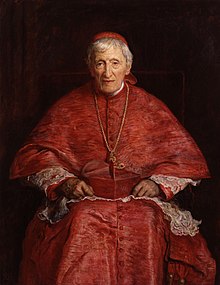Argument from morality
German philosopher Immanuel Kant devised an argument from morality based on practical reason.In his book Mere Christianity, C. S. Lewis argued that "conscience reveals to us a moral law whose source cannot be found in the natural world, thus pointing to a supernatural Lawgiver.Contemporary defenders of the argument from morality are Graham Ward, Alister McGrath and William Lane Craig.Some of these arguments propose moral facts which they claim evident through human experience, arguing that God is the best explanation for these.He also argues that alternative conceptions of morality exist which do not rely on the assumptions that Kant makes – he cites utilitarianism as an example which does not require the summum bonum.Atheist philosopher J. L. Mackie accepted that, if objective moral truths existed, they would warrant a supernatural explanation.Scottish empiricist David Hume made a similar argument, that belief in objective moral truths is unwarranted and to discuss them is meaningless.He argued that emotivism is an inadequate explanation of the human experience of morality because people avoid acting immorally, even when it might be in their interests.[17] C. S. Lewis argues for the existence of God in a similar way in his book Mere Christianity, but he does not directly refer to it as the argument from morality.

Argument from morality (modal realism)Philosophy of religionReligiousAfterlifeApophatismCataphatismEschatologyEnlightenmentIntelligent designLiberationMiracleMysticismReincarnationReligious faithScripture (religious text)SpiritTheological vetoEthical egoismEuthyphro dilemmaLogical positivismReligious languageVerificationismeschatologicalProblem of evilTheodicyAugustinianIrenaeanBest of all possible worldsInconsistent triadNatural evilConceptionsAnthropopathismBrahmanDemiurgeDivinely simpleForm of the GoodHoly SpiritMaltheistOccasionalismPandeistPersonalProcess-theologicalSummum bonumSupreme BeingUnmoved moverExistenceBeautyChristologicalTrilemmaResurrectionConsciousnessCosmologicalkalāmDegreeDesireExperienceExistential choiceFine-tuned universeMathematicsMiraclesNatural lawNecessary existentSeddiqinNyayakusumanjaliOntologicalGödelAnselmMeinongianMulla SadraPascal's wagerProper basis / Reformed epistemologyReasonResponses to evilTeleologicalWatchmakerJunkyardTrademarkTranscendental747 gambitAtheist's wagerCreator of GodEvil GodFate of the unlearnedFree willGod of the gapsHitchens's razorIncompatible propertiesInconsistencyNonbeliefNoncognitivismOmnipotence paradoxPoor designRussell's teapotAbrahamicBaháʼíChristianityJudaismMormonismMandaeismBuddhismHinduismJainismSikhismTheories of religionAcosmismAgnosticismAnimismAntireligionAtheismCreationismDharmismDivine command theoryDualismEsotericismExclusivismExistentialismatheistChristianFeministFundamentalismGnosticismHenotheismHumanismsecularInclusivismMonism